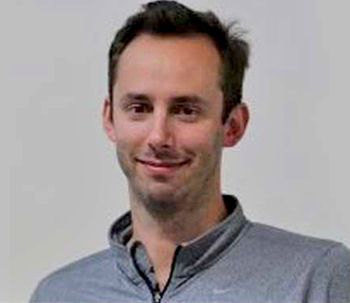Feb 24: In 2013, Anthony Levandowski was the star of Google's self-driving car project. The tall, swaggering engineer was featured in a long New Yorker story about the search engine willing the impossible technology into reality.
 Less than four years later, he is Google's enemy number one.
Less than four years later, he is Google's enemy number one.
On Thursday, Waymo, the Alphabet Inc. company formed from Google's self-driving project, filed a blistering lawsuit accusing Levandowski of taking incredibly valuable intellectual property from Alphabet to his current company, Uber Technologies Inc.
Waymo's lawsuit hinges on a series of alleged moves from Levandowski in the days leading up to his departure from Alphabet in January 2016. His web searches, downloads and access to an external drive left behind digital footprints. When exposed, they were closely scrutinized by his former employer --which is now citing them as central to its lawsuit, a rare intellectual property claim from Alphabet.
The legal case also deepens a growing rift between the two companies, which are becoming bitter rivals in mapping, autonomous vehicles and -- potentially -- Uber's core business of ride-hailing services.
At the center of it all is the six foot seven Levandowski
The prodigious engineer has spent much of his career chasing a dream of placing robotic cars on the road. While at the University of California at Berkeley, he entered a self-driving motorcycle in the 2004 DARPA Grand Challenge, a historic event for the young field.
He also started 510 Systems, a robotics firm building lasers for autonomous vehicles. The startup once ran a stunt with a self-driving pizza car. Levandowski started at Google in 2007, working on its Street View unit, where he played an instrumental role in building its mapping hardware to fit on cars.
After being recruited to its secretive car project, he continued to work on 510 Systems, according to two people familiar with the situation. Google eventually acquired the startup as it pushed deeper into self-driving technology.
Years later, Waymo would detail how Levandowski had secretly plotted his next startup, Otto, while also working for Google. Uber acquired Otto in August for $680 million.
According to Waymo's suit, Levandowski installed "specialized software" on his corporate laptop, in December 2015, loading it with 14,000 confidential files about lidar technology, vital to autonomous driving. "Levandowski took extraordinary efforts to raid Waymo's design server and then conceal his activities," the suit reads.
In January of last year, he began telling Alphabet colleagues about plans to "replicate" its technology at a competitor. The suit says he visited Uber's San Francisco headquarters on January 14, 2016 and the next day he formed a company that would become Otto.
Less than two weeks later, he resigned from Alphabet without notice.
Alphabet's lawsuit comes after a wave of significant departures from its car unit, which has still not delivered a commercial service despite years of work.
Some workers may have had additional impetus to leave. At the onset of its car project, Google set up a pay system that would reward early employees greatly upon departure, as Bloomberg News reported earlier. "Notably," Waymo's lawsuit reads, "Otto announced the acquisition [by Uber] shortly after Mr. Levandowski received his final multi-million dollar compensation payment from Google."
Levandowski was among the first to exit.
In a statement, Uber said: "We take the allegations made against Otto and Uber employees seriously and we will review this matter carefully." Levandowski didn't respond to phone calls seeking comment. "We did not steal any Google IP,'' Levandowski told Forbes last year in comments that were republished Thursday. Just want to make sure, super clear on that. We built everything from scratch and we have all of the logs to make that-just to be super clear.''Uber placed him atop their nascent autonomous vehicle efforts in July. The next month the company unveiled plans to bring self-driving cars to Pittsburgh.Waymo's suit caps a horrendous week for Uber, which is reeling from damning public charges of sexual harassment in its ranks. The company's culture has been slammed and Eric Holder, a former U.S. attorney general, has been hired to investigate.Former Google colleagues described Levandowski as "very driven," with a personality similar to Uber Chief Executive Officer Travis Kalanick.That's a comparison Kalanick made himself when he announced the acquisition of Otto."I feel like we're brothers from another mother," he said at the time.





Comments
Add new comment